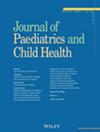Developing a rural paediatrician workforce: Using social network analysis to examine influence on reasons to go rural
Abstract
Aim
This pilot study examines how rural and remote junior doctors' career decisions are influenced by collegial relationships within the discipline of general paediatrics.
Methods
Social network analysis (SNA) was undertaken by structured interviews with 10 paediatricians working in regional towns in Western Australia. UNICET software was used to determine the interactions between individual networks to look for overlap and common influencers.
Results
Ten rural paediatricians were interviewed. An individual was found to have key measures of centrality at the core of the entire social network of rural general paediatricians. This included a high degree of ‘betweenness’ (connections within social networks), and a high broker index (connections between separate areas of a network or between networks) demonstrated by that person combining three disconnected networks into a single coherent network. This central individual was a recently appointed consultant with links to senior paediatricians, peers and junior trainees, and may be instrumental in recruitment and retention in the rural paediatric workforce.
Conclusion
Improving understanding of the impact of social networks, and decision-making processes that influence rural career choices, can inform innovative solutions to develop sustainable strategies for recruiting and retaining the rural paediatric workforce. Applying this model on a larger scale may provide more data to support evidence-based programmes that enable this within the Australian context.

 求助内容:
求助内容: 应助结果提醒方式:
应助结果提醒方式:


